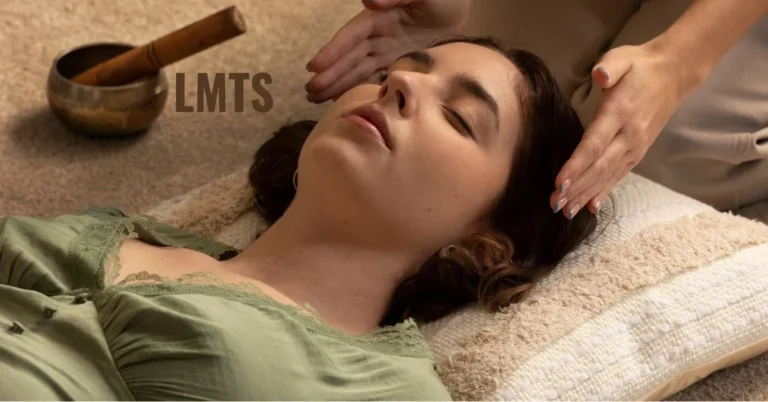Introduction to LMTs (Licensed Massage Therapists)
Welcome to a journey through the evolution of Licensed Massage Therapists (LMTs) in the bustling capital city. From their humble beginnings to their current indispensable role in health and wellness, LMTs have come a long way. Join us as we explore the fascinating world of LMTs and discover how they are shaping the landscape of well-being in our dynamic city. Let’s delve into the transformative impact of these skilled professionals and uncover what sets them apart in an ever-changing industry.
The Evolution of LMTs in the Capital
The Evolution of Licensed Massage Therapists (LMTs) in the capital has been a journey marked by growth and recognition. From humble beginnings to becoming integral players in the health and wellness industry, LMTs have seen a remarkable transformation over the years.
In recent times, there has been a notable shift towards holistic approaches to healthcare, with more people seeking alternative therapies like massage therapy for both relaxation and healing purposes. This changing consumer mindset has propelled LMTs into the spotlight as trusted practitioners who offer valuable services beyond just pampering.
With advancements in technology and increased awareness about the benefits of regular massages, LMTs are now leveraging digital platforms to reach a wider audience and connect with clients more efficiently. Moreover, ongoing training and specialization opportunities have enabled LMTs to refine their skills and stay abreast of emerging trends in the field.
As LMTs continue to adapt to evolving client needs and industry standards, they play an essential role in promoting overall well-being and enhancing quality of life for individuals in the capital.
Benefits of Using LMTs for Health and Wellness
In today’s fast-paced world, stress and tension can take a toll on our bodies. This is where Licensed Massage Therapists (LMTs) play a crucial role in promoting health and wellness. LMTs are trained professionals who specialize in various massage techniques to help alleviate muscle pain, reduce stress, and improve overall well-being.
One of the key benefits of using LMTs for health and wellness is their ability to customize treatments based on individual needs. Whether you’re dealing with chronic pain or simply need some relaxation, LMTs can tailor their approach to address your specific concerns.
Regular massage sessions with an LMT can also contribute to better circulation, increased flexibility, and enhanced immune function. Additionally, massages have been shown to boost mood by releasing endorphins – the body’s natural feel-good chemicals.
Incorporating LMT services into your self-care routine can lead to improved physical and mental health outcomes. So why not treat yourself to a session with an LMT today?
Impact of COVID-19 on the LMT Industry
The COVID-19 pandemic has brought significant challenges to the Licensed Massage Therapists (LMTs) industry in the Capital. With restrictions on close contact services, many LMTs had to temporarily close their businesses or limit their operations.
For LMTs who could continue offering services, stringent health and safety protocols became paramount. Implementing measures such as mask-wearing, frequent sanitization, and spacing out appointments were crucial to ensuring client safety.
The shift towards online consultations and virtual therapy sessions also emerged as a way for LMTs to adapt during these challenging times. While it couldn’t fully replace hands-on treatments, it provided an alternative for clients seeking relief from stress and muscle tension at home.
Despite the setbacks faced by the LMT industry due to COVID-19, many therapists showed resilience and creativity in finding new ways to serve their clients while prioritizing health and safety above all else.
How LMTs are Adapting to the Changing Landscape
In today’s ever-evolving world, Licensed Massage Therapists (LMTs) are embracing change and adapting to the shifting landscape of the industry. With advancements in technology and increased awareness of holistic health practices, LMTs are incorporating new techniques and tools into their practice to better serve their clients.
Many LMTs have started offering virtual consultations and sessions to cater to clients who prefer remote services or may not be able to visit a physical location. This shift has allowed for greater accessibility and convenience for both practitioners and clients alike.
Moreover, some LMTs are expanding their skill set by specializing in niche areas such as sports massage, prenatal massage, or aromatherapy. By diversifying their expertise, they can attract a wider range of clientele while also providing specialized care tailored to individual needs.
Additionally, LMTs are staying current with industry trends by participating in continuing education courses and workshops. By staying informed about the latest research and developments in the field of massage therapy, they can ensure that they are providing high-quality care that meets the evolving needs of their clients.
The Importance of Regulation and Licensing for LMTs
Regulation and licensing play a crucial role in ensuring the quality and professionalism of Licensed Massage Therapists (LMTs). By setting standards and guidelines, regulatory bodies help protect clients from unqualified practitioners. Licensing also provides credibility to LMTs, instilling trust in their expertise and skills.
Having regulations in place helps maintain consistency in the industry, promoting safe practices and ethical conduct among therapists. It ensures that LMTs’s are properly trained, knowledgeable about anatomy, physiology, and massage techniques. This ultimately leads to better outcomes for clients seeking therapeutic treatments.
Furthermore, regulation helps weed out individuals who may pose harm or risk to clients due to lack of training or improper conduct. It creates a level playing field for all practitioners by upholding professional standards that benefit both therapists and those seeking their services.
Regulation and licensing are essential components in elevating the status of LMTs’s as reputable healthcare providers dedicated to enhancing the well-being of their clients through skilled touch therapy.
Future Outlook for LMTs in the Capital
The future outlook for Licensed Massage Therapists (LMTs) in the Capital looks promising. With a growing emphasis on holistic health and wellness, the demand for skilled LMTs’s is expected to rise steadily in the coming years. As people increasingly prioritize self-care and stress relief, the services provided by LMTs’s are becoming more sought after.
Moreover, advancements in technology have made it easier for clients to book appointments with LMTs’s through online platforms and apps. This convenience factor is likely to contribute to the continuous growth of the industry.
Furthermore, as more research highlights the benefits of massage therapy for both physical and mental well-being, there is a growing recognition of the importance of incorporating LMT services into regular healthcare routines. This shift towards integrated healthcare approaches bodes well for the future success of LMTs’s in the Capital.
As awareness about alternative healthcare practices continues to expand, LMTs’s can expect a bright future ahead filled with opportunities for growth and impact in promoting overall wellness within their communities.
Conclusion
As the capital continues to evolve, Licensed Massage Therapists (LMTs) are playing an increasingly vital role in promoting health and wellness. The resilience and adaptability shown by LMTs in the face of challenges such as COVID-19 are commendable. With a strong emphasis on regulation and licensing, LMTs are poised to make significant contributions to the well-being of individuals in the capital.
Looking ahead, the future for LMTs in the capital appears promising as they continue to innovate and meet the changing needs of their clients. By staying abreast of industry trends and embracing new technologies, LMTs’s are well-positioned to thrive in a dynamic healthcare landscape.
Licensed Massage Therapists (LMTs) have firmly established themselves as essential healthcare providers in the capital, offering valuable services that promote physical and mental well-being. As they navigate through challenges and embrace opportunities for growth, LMTs’s will undoubtedly continue to play a crucial role in enhancing overall health outcomes for residents of the capital.
FAQs
What are LMTs and why are they important in the capital city’s health landscape?
Licensed Massage Therapists (LMTs) are professionals trained in various massage techniques aimed at promoting relaxation, relieving muscle tension, and improving overall well-being. They are integral to the capital city’s health landscape because they offer holistic approaches to health and wellness that complement traditional medical practices.
How have LMTs adapted to digital platforms and technology advancements?
In response to changing consumer preferences and technological advancements, many LMTs now offer virtual consultations and sessions. This shift has made their services more accessible and convenient for clients who prefer remote options or cannot visit physical locations.
What impact did COVID-19 have on the LMT industry in the capital?
The COVID-19 pandemic presented significant challenges for LMTs, leading to temporary closures and restrictions on services due to health and safety concerns. However, many therapists adapted by implementing stringent protocols and offering virtual therapy options to continue serving clients safely.
Why is regulation and licensing important for LMTs?
Regulation and licensing ensure that LMTs’s meet established standards of practice, including proper training and ethical conduct. This protects clients from unqualified practitioners and maintains professionalism within the industry, ultimately enhancing trust and credibility.
What does the future look like for LMTs in the capital?
The future for LMTs in the capital is promising, with growing awareness and demand for holistic health practices. Advances in technology and increasing emphasis on self-care are expected to drive continued growth in the industry, providing opportunities for LMTs’s to expand their reach and impact.

